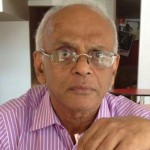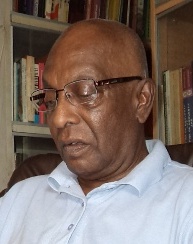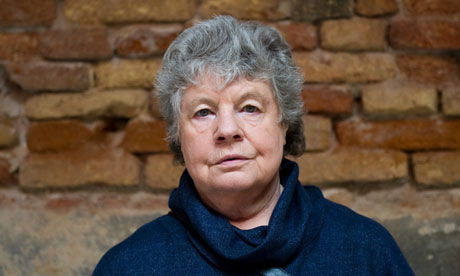Wijayadasa’s thesis
The veteran Civil Servant and Secretary to two former Presidents, K.H.J Wijayadasa has delivered a very strong message to contemporary Sri Lankans in his publication “Governance, Heritage and Sustainability” launched last week in Colombo before an audience of likeminded veterans belonging to his era. He has said that the “legitimacy of government is measured by degree of democratisation, accountability of official and political elements of government, transparency, respect of human rights as well as the ability to uphold the sanctity of the rule of law”. Explaining what he means by this, he has said that at political levels, the rulers should be held accountable to the people whom they rule by giving the people a chance to contest the political power. Today’s trend has been, he says, moving toward a less authoritarian mode of power exercised by politicians and supported by a participatory approach in which everyone at all levels has a say about the doings of the governments. This view of Wijayadasa is consistent with how democracy has been defined by Nobel Laureate Amartya Sen in his 2009 book “The Idea of Justice”: Democracy is government by consultation.
Wijayadasa: Sri Lanka should strengthen its Supreme Court
In Chapter I of the book, presenting his observations of the American Presidential election of 1996, Wijayadasa has praised the checks and balances established in the American system of governance to limit the authoritarian powers of its Executive Presidency through an effective separation of powers among the three major branches of the state: The Executive, the Legislature and the Judiciary. Based on the virtues of the American system, he has recommended to Sri Lanka that the country’s Supreme Court should be armed with more powers to determine the constitutionality of both legislative and executive actions. In my view, Wijayadasa’s prescription is timely and opportune in view of the current embroilment between the Supreme Court and the other two branches of the state in Sri Lanka. It is the opinion of the constitutional experts that the Supreme Court exercises its powers on behalf of the people in whom the sovereignty has been vested just like the other two branches do the same on behalf of people.
Dandamis: Instill fear but don’t expect love and respect from others
But such a separation alone cannot guarantee the elimination of authoritarian rule in a society. The three branches should respect each other and should have cultivated a practice of morality of not using the powers vested in them for a different cause to instill fear in others. This was eloquently communicated to Alexander the Great by Dandamis, a Sage in the ancient Indian University of Taxila, when Alexander asked him the question: “How can one make oneself loved and respected by others?” The answer of Dandamis was swift and clear: “If you have enormous powers, but still you do not instill fear in others, then, you are loved and respected” So, good governance requires each of the branches of the state to use its powers responsibly and with due accountability without instilling fear in other branches. Wijayadasa has in his book provided a blueprint of how a government should accomplish this wish of a nation.
Rulers are simply servants and not masters
The moral principle of governance pronounced by Wijayadasa is that a ruler or rulers are simply servants of people and not their masters. Hence, a ruler has to act according to the wishes of the people and not the other way about. A ruler needs to be modest, humble and accommodating in order to perform this role as a servant. Indian rulers from time immemorial are expected to cultivate these qualities in them by following Dasa Raaja Dharma or ten royal qualities. Wijayadasa says that when a country has imbedded these principles in its governance structure, it will attain both political and economic stability and he has recommended Sri Lanka to seek after that goal. The country has to eliminate both political favouritism and political victimisation and create equal opportunities for all people to lead a comfortable life. And according to Wijayadasa, that is the key to sustainable prosperity of a nation.
Lloyd Fernando: Take a holistic view through Development Paradigm
Dr Lloyd Fernando of Sri Lanka’s National Planning fame reviewed the governance aspects of Wijayadasa’s book at the book launch. He in fact presented Wijayadasa’s model in a wider macroeconomic frame encompassing all the salient requirements which a society has to put in place if it wishes to attain what he says the holistic development goal of a nation.
Lloyd Fernando invited his audience to imagine a huge building with a foundation at the bottom, pillars built on the foundation and a roof that rests on those pillars. It is in fact a simplified version of the Development Paradigm developed by Lloyd Fernando earlier and used for teaching his students at the Postgraduate Institute of Management or PIM. He has explained the different roles which the parts of the imaginary building have to play in a society as follows.
Development is not just economic growth but a holistic one
The roof is what provides solace and comfort to people living in the building. In Lloyd Fernando’s model, it represents ‘holistic development’ which is much more than the attainment of a mere rapid economic growth. Of course, economic growth is necessary for people to enjoy a good life. But it is not sufficient to give them the required quality of life. That quality of life has different manifestations and one may infer them from what he has said as follows..
On the economic side, they should have a sufficient income to command a basket of quality goods and services. Economic growth provides quality goods and services, but it does not guarantee that everyone will have access to such goods and services. One has to bring in income distribution and anti-poverty measures to guarantee it.
On the social side, people should have opportunities to advance their status in the society which economists call ‘social mobility’. Access to quality education, ability to pursue a profession of one’s choice without being victimised or denied of same due to favours afforded to others and engagement in a business of choice freely are the basic prerequisites for a person to climb up the social ladder.
On the political side, people should have right to elect their rulers and, as Wijayadasa contends, right to contest the decisions of such rulers without fear of being subject to reprisal or persecution. When one adds ‘government by consultation’ to the mode of the prevailing democratic system, the political side of holistic development is accomplished.
On the spiritual side, people should have freedom to think and express what they think as right, fair and just and follow a spiritual path of their choice without being hindered by oppressive actions of governments. When all these four factors are combined together, they form the main beams of the roof representing holistic development.
Four essential pillars of growth
The four pillars, according to Lloyd Fernando, represent four areas of strategic policy in a country. They are the macroeconomic policy, production and output policy, infrastructure development policy and human resource development policy of a country. Then comes the foundation of the building about which both K.H.J Wijayadasa and Lloyd Fernando are in agreement: Good governance that is key for the strength, durability and sustainability of the building. If the foundation is weak, so are the pillars that represent the strategic policy areas and the final goal of those strategic policies, namely, the holistic development. If society is interested in having a sustainable holistic development, it should strengthen its governance structure at all costs.
Corrupt one policy and then harvest corruption in others
Lloyd Fernando says that the first pillar, the macroeconomic policy strategy, is a synchronisation of four other policies, namely, monetary policy being conducted by the central bank, fiscal policy being conducted by the Ministry of Finance, trade policy being conducted by the government and foreign exchange policy being conducted by the central bank and the Ministry of Finance in collaboration with each other. These four policies affect each other in a dynamic sense and therefore if one policy is corrupted for whatever the reason, it has a far-reaching bearing on the other policies leading to a similar corruption there. For instance, if the central banks prints money and finances the budget deficit, it helps the budget temporarily. But in the long run, the government loses its tax collection ability and traps the budgets in an ever shrinking tax base requiring the governments to print more money or borrow more or do both. It leads to a serious budgetary problem driving governments to the wall which modern economists have termed ‘the fiscal cliff’. Lloyd Fernando has said that USA, Italy, France and Spain are now approaching the cliff and about to fall off it to their own peril. So has Sri Lanka. His view on this has been validated by the recent reported window-dressing by the Ministry of Finance to keep the country’s budget numbers at the budgeted ratios by postponing the expenditure programmes and transferring a large segment of such expenditure programmes to state guarantees which do not involve immediate payments by the Treasury. As a consequence of excess printing of money by the central bank, there will be local inflation and if the local inflation is higher than the inflation rates of Sri Lanka’s competitors, Sri Lanka will lose competitiveness with respect to its exports. To correct it, depreciation of the exchange rate is needed. If the exchange rate is not allowed to depreciate, then, the local currency gets over-valued discouraging exports and encouraging imports. The result? A balance of payments crisis. Thus, Lloyd Fernando says that a coherent policy package is needed to keep this pillar strong, viable and sustainable.
Production enhancement should be in all areas
The second pillar involves the production base of a country. Wijayadasa has concentrated here on food and nutrition safety which involves speeding up agricultural production. Agriculture is necessary and important, but given Sri Lanka’s current development problems, both industry and services are needed. Lloyd Fernando has said that industry should move from the current simple technology to complex technology to beat the competition coming from cheap labour countries like Bangladesh and Myanmar, a stand consistently taken by this writer in his previous My Views. Though Lloyd Fernando does not talk about services, there is necessity for Sri Lanka to sophisticate its services sector using advanced information and communication technology to reduce inconvenience and keep pace with the current global developments.
Grandiose infrastructure projects: Plan before the plunge
Both Wijayadasa and Lloyd Fernando agree that Sri Lanka should have to upgrade its third pillar, namely, having modern infrastructure facilities. Lloyd has specifically said that Sri Lanka needs cheaper energy, better roads and railways, irrigation systems and many other efficient infrastructure facilities to lure both domestic and foreign investments to enhance the production base of the country. Yet, they warn that those facilities should be planned carefully. Wijayadasa has cautioned Sri Lanka against rushing into grandiose projects without proper study and preparation since it would be costly ‘financially, environmentally and politically’. In the view of this writer, such grandiose projects also lack proper business plans to make them commercially viable and, due to this reason, many such projects started in Sri Lanka have been a drain to the already shrinking revenue base of the government. Wijayadasa has specifically said that in the past Sri Lanka had made many mistakes with respect to such grandiose projects. His comments have been that many of these mistakes could have been avoided if proper technical and economic feasibility studies and environmental impact studies were done before taking the plunge. Surely both Wijayadasa and Lloyd Fernando have a good piece of advice from their long experience in the public service to Sri Lanka’s current and future policy makers.
Develop quality and relevant human capital
The fourth pillar underlies the importance of the quality human capital for Sri Lanka to emerge as a nation of worth in the global economy. The quality human capital is needed to sophisticate all the three pillars and the governance structure of the country. If the central bank and the Ministry of Finance are not staffed by people of knowledge, both the monetary policy and the fiscal policy will be corrupted leading to similar policy corruptions in trade policy and exchange rate policy. The costs of such policy corruptions are enormous and need be avoided. While Wijayadasa has emphasised on raising human capability by getting the latent creativity and energies released, Lloyd Fernando has spoken about the need for improving the education system to generate a quality and relevant stock of human knowledge to take Sri Lanka to the future. In both these respects, in my view, the level of Sri Lanka’s human capital development is much to be desired.
Governance is the key
Even if the pillars are strongly built, they cannot serve their purpose if the foundation which Lloyd Fernando has defined as the ‘governance structure of a country’ is weak. According to Wijayadasa, governance is simply the “manner in which power is exercised in the management of a country’s economic and social resources for development”. He further says that “good governance is epitomised by among other things predictable, open and enlightened policy making”. Lloyd Fernando has further developed this idea drawing on his Development Paradigm. He says that governance is an effective and efficient partnership of all stakeholders of a holistic development process: Government, business and people. People here are represented, according to Lloyd Fernando, by civil society organisations, such as, in particular, trade unions and NGOs. Hence, any animosity that is expressed on these civil society organisations will break down the beneficial partnership which has to be constructed among the development stakeholders and in turn will lead to sacrificing the holistic development goals of the society.
K.H.J Wijayadasa has given this strong message to Sri Lankans. Lloyd Fernando has illustrated it with a model of development economy which he has termed ‘the Development Paradigm’.
*Writer is a former Deputy Governor – Central Bank of Sri Lanka and teaches Development Economics at the University of Sri Jayewardenepura. This article first appeared in Daily FT - W.A. Wijewardena can be reached at waw1949@gmail.com







.jpg)